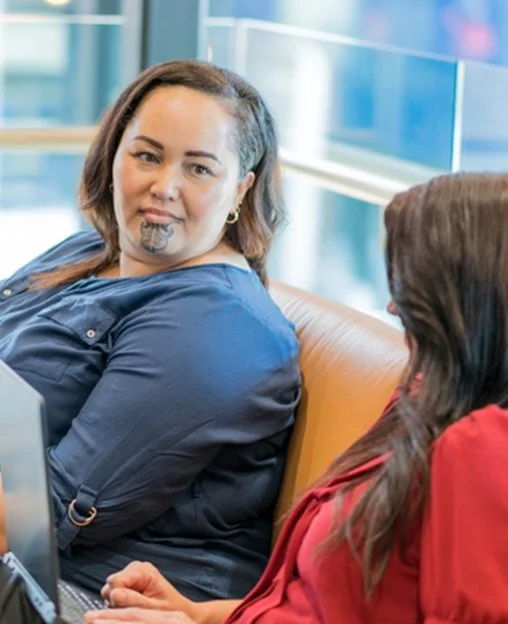Our Projects
Find out more about our latest collaborative projects
He Ako Hiringa – eliminating inequity in funded medicines
Giving all New Zealanders the opportunity to receive the treatments they need to thrive.
Created by Matui in collaboration with The Health Media, He Ako Hiringa aims to improve medicine access equity for the people of Aotearoa New Zealand by giving clinicians the opportunity to reflect on practice and purpose, with free education and self-reflection tools and resources, including articles, videos, podcasts, quizzes and prescribing dashboards.
The He Ako Hiringa website is home to the tools and resources and is fully integrated with a learning management system capable of recording and accrediting users who have completed learning activities.
Our prescribing platform – the EPiC (Evaluating Prescribing and informing Care) dashboard – is an interactive tool that allows clinicians to view their data and compare prescribing rates and trends to national rates and those of their peers.
Our goal is that the EPiC dashboard will allow clinicians to see any gaps or differences in their prescribing behaviours and help them to improve medicine access equity for their patients.
EPiC data themes help primary care clinicians learn about medicine use and how you can help address national problems of prescribing practice and include:
Type 2 Diabetes: See prescribing patterns for people who have diabetes, with a focus on Māori, Pacific peoples, and those living in high socioeconomic deprivation.
Gout: Help to identify gout patients who could benefit from strategies designed to improve uptake of ULT, prophylaxis against flares and treat-to-target ULT optimisation.
Cardiovascular Diseases: Check to see how many of your patients have established CVD and are dispensed triple therapy.
Cilazapril: Help for you to plan for patients still taking cilazapril and identify priority groups to transit away from it.
Helping funded medicines reach priority populations
We worked with a client in 2022 to identify and understand underserved populations using funded medicines for the treatment of a long-term condition.
Matui undertook three specification meetings with the client to co-create a series of questions that we sought to answer with our data stories.
As a consequence, data around who was prescribing their medicine and the patient journey to and from their medicine was made available to them.
They are now able to consider what medicines the client was taking prior to starting their medicines, the timing of the transfer to their medicine and whether this was being handled optimally.
In the future this could enable them to consider working with clinicians on factors such as patients picking up prescriptions and persistence with taking their medicine.
Prescribing emergency services – St John New Zealand
One of the biggest challenges facing emergency medical services is to dispatch the most appropriate resource to provide the right care at the right time. Generally, this decision is made by experienced and qualified intensive care paramedics, who evaluate each incident call manually, but during busy times with high volumes of calls, evaluating all potential incidents in a timely manner may be difficult. And with the demand for emergency ambulance services increasing steadily, this has put additional strain on a health service faced with economic constraints.
Working with St John New Zealand, our staff have developed a decision support system for dispatchers based on machine learning to help select the best emergency response for patients, based on need.
Improving health outcomes through dose optimisation
In 2022 we assisted a client to understand what type of clinician was prescribing their funded medicines within defined therapeutic categories. Consequently, the client was able to target support for the prescribing clinicians much more accurately.
We expanded this analysis to define the type of patients using the medicine and the dosage more robustly, allowing the client to begin a project looking at how they can improve health outcomes by assisting clinicians work on dose optimisation in the affected population.
Regular updates will allow the client to track their project outcomes over time.
Combining data and insight to improve health outcomes
Data has the potential to create a positive impact on healthcare, but it can only create true value when combined with human insight. As experts in health research as well as data, we not only analyse the data, we help our clients make sense of the results and how it fits with Aotearoa New Zealand’s dynamic health landscape.
We have helped the Southern District Health Board by creating an enhanced data platform and analytics that provide insightful actions to help identify gaps in care to drive improvements across the region. Projects have included:
Monitoring changes in medicine and hospital use.
Evaluating intervention effectiveness.
Identifying gaps in care (for example, equity) and using this information to develop new services.
Identifying areas or practices with positive patient outcomes versus those that don’t in order to assess reasons why to help drive change.
Providing valuable insights into which clinical approaches and/or treatments are having the desired impact for different target populations and situations.
Benchmarking SDHB against other DHBs to determine how it compares.
Forecasting expenditure and service/medicine utilisation.







